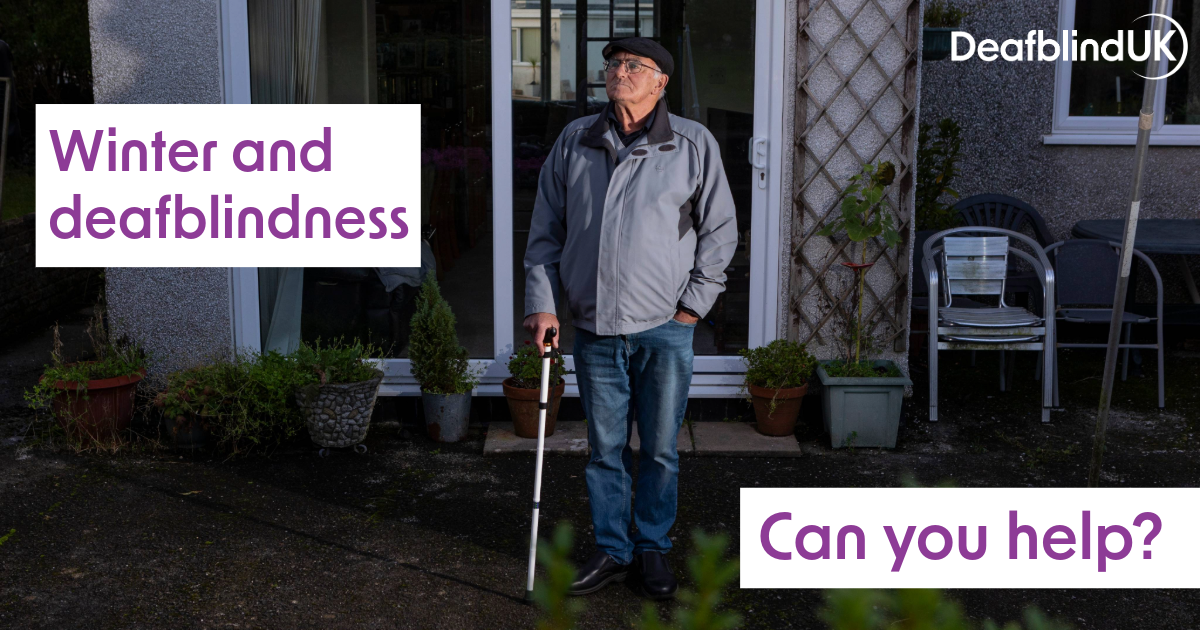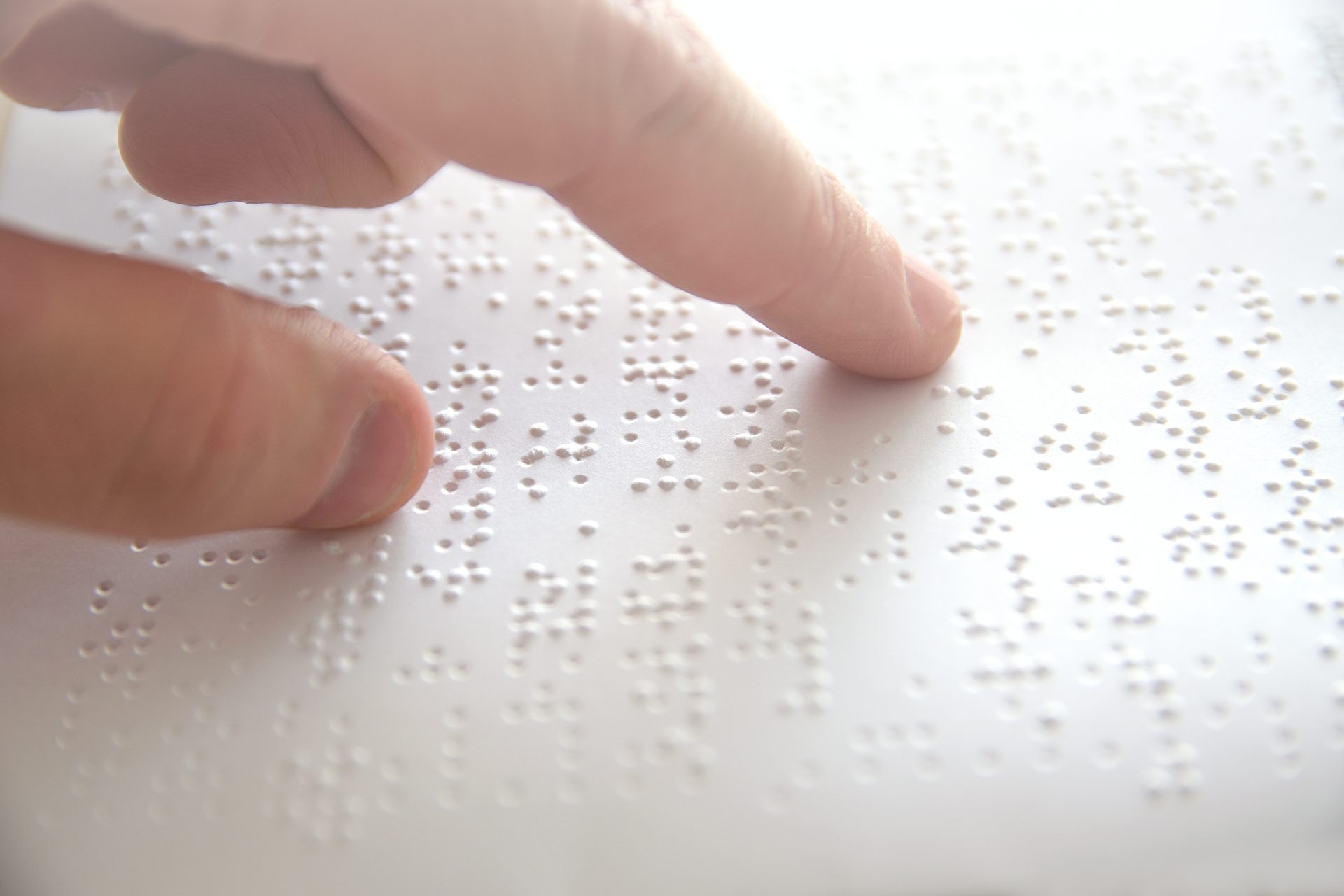Why Winter is difficult for people who are deafblind – And how you can help

Winter brings unique challenges for everyone, but for people who are deafblind, the colder months can be particularly tough. From navigating in reduced daylight to dealing with icy surfaces, the season can present many barriers. Here’s a breakdown of some of the challenges and some practical ways to help.
Shorter days mean more darkness
Navigating the world with limited vision or hearing is always challenging, but the shorter daylight hours of winter can make it even harder to stay oriented and feel safe.
How to help:
- Offer assistance when someone is navigating dimly lit areas.
- Be extra aware when you see someone using a guide cane while crossing roads.
- Install motion-sensor lights at entrances or along pathways to help improve visibility.
Snow and ice cause glare
Bright reflections from icy pavements, snow, or water can overwhelm someone with low vision, making it harder to spot hazards.
How to help:
- Report any hazard areas such as uneven or blocked paths to your local council.
- Keep pathways clear of snow and ice to minimize reflective surfaces.
Slippery surfaces are a real danger
Icy pavements and snowy paths can make moving around safely nearly impossible, increasing the risk of slips and falls.
How to help:
- Regularly clear walkways of ice and snow, and sprinkle grit or salt to provide traction.
- Offer to guide someone over slippery areas if they’re comfortable with it.
Feeling isolated
Winter often means fewer social activities and outdoor interactions, which can heighten feelings of loneliness and anxiety for people who are deafblind.
How to help:
- Reach out to friends, family, or neighbours who are deafblind. A simple check-in can mean a lot.
- Include your friends, family and peers in social activities or offer help with errands.
- Help to set timers on lamps at home so they turn on automatically when it gets dark, click here for timers on Amazon.
- Share resources like our helpline (0800 132 320) for Winter Wellness services.
Click here to learn more about the Winter Wellness services.
Winter attire can be a barrier
Thick gloves, hats, and scarves can make tactile communication methods, like signing or touch cues, more difficult. Scarves that cover mouths can also interfere with lipreading.
How to help:
- Use simple, clear touch cues if tactile communication is needed.
- Be patient, as bulky gloves or cold fingers can slow down signing.
- Remove any face coverings, like scarves, when communicating.
Small actions make a big difference
Winter may bring extra challenges, but with a little thoughtfulness, we can make the season more inclusive and supportive for people who are deafblind. Let’s work together to create a world where everyone feels connected and cared for this winter.
If you or someone you know needs some help and support then please get in touch, you can contact us by
Calling on 0800 132 320
Texting 07903 572885
Email info@deafblind.org.uk
Alternatively, click here to find our contact form.
Let’s keep in touch!
Join our mailing list and we will keep you up to date about our projects and opportunities to get involved with Deafblind UK.
More Articles

Celebrating 200 years of Braille: A tribute to Louis Braille
Every January, we celebrate World Braille Day, honouring the legacy of Louis Braille, the Frenchman who gave the world a…

Ian’s fundraising ‘snookerthon’ in memory of his mum who was deafblind
Remember how we always talk about getting creative with fundraising and doing it your own way? Well, meet Ian Pettey,…

